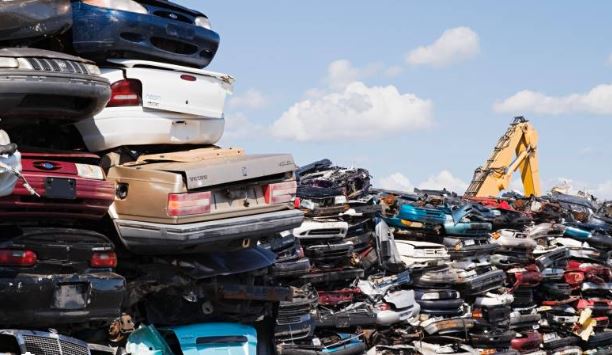Scrap car yards are an integral part of the automotive industry, playing a crucial role in the recycling and disposal of end-of-life vehicles. These yards serve as a hub for salvaging usable parts, recycling materials, and ensuring proper disposal of hazardous components. As the world becomes more conscious of environmental sustainability, the scrap car yard industry is witnessing a significant transformation. In this article, we will delve into the emerging trends that are shaping the future of scrap car yards and explore the challenges and opportunities that lie ahead.
The Current State of Scrap Car Yards
Before we jump into the future, it is essential to understand the current state of scrap car yards. Traditionally, these yards have operated on a local level, relying on physical auctions and partnerships with local mechanics and car dealerships. While some yards have embraced modern technology, many are still lagging behind in terms of digitalization and streamlined processes. This lack of efficiency can lead to delays in acquiring inventory and hinder the overall growth of the business.
Emerging Trends in the Scrap Car Yard Industry
The scrap car yard industry is experiencing a wave of transformation, driven by emerging trends that are reshaping the way these businesses operate. One prominent trend is the integration of advanced technologies such as artificial intelligence (AI) and machine learning. These technologies enable scrap car yards to automate various processes, including inventory management, pricing, and even the identification of valuable parts. By harnessing the power of AI, yards can streamline operations, reduce costs, and improve overall efficiency.
Another emerging trend is the shift towards sustainable practices and environmental responsibility. With increased awareness about the impact of end-of-life vehicles on the environment, scrap car yards are under pressure to adopt greener solutions. This includes implementing eco-friendly dismantling methods, proper disposal of hazardous materials, and promoting the recycling of valuable resources. By aligning their operations with sustainable practices, scrap car yards can not only contribute to a healthier planet but also attract environmentally-conscious customers.
Technology Advancements in Scrap Car Yards
Technology advancements are revolutionizing the way scrap car yards function. One such advancement is the use of data analytics and predictive modeling. By analyzing historical data, yards can accurately predict the demand for certain mazda wreckers hobart, optimize pricing strategies, and make informed decisions about inventory acquisition. This data-driven approach allows yards to stay ahead of the competition and ensure they have the right parts at the right time.
Furthermore, the adoption of online platforms for buying and selling scrap cars has gained traction in recent years. These platforms provide a convenient and efficient way for individuals and businesses to connect and transact. Sellers can easily list their scrap cars, while buyers can browse through a wide range of options. The use of online platforms not only expands the reach of scrap car yards but also enhances customer experience by providing a seamless and transparent transaction process.
The Impact of Environmental Concerns on Scrap Car Yards
Environmental concerns have become a driving force behind the transformation of the scrap car yard industry. As governments and regulatory bodies tighten their grip on emissions standards and waste management, scrap car yards are compelled to adapt and implement sustainable practices. This includes investing in advanced recycling technologies, exploring alternative energy sources, and promoting the reuse of materials. By prioritizing environmental responsibility, scrap car yards can not only comply with regulations but also attract eco-conscious customers who value sustainable practices.
The Rise of Online Platforms for Buying and Selling Scrap Cars
The rise of online platforms has disrupted the traditional way of buying and selling scrap cars. These platforms provide a centralized marketplace where individuals and businesses can connect and conduct transactions with ease. Sellers can list their vehicles, upload detailed descriptions and images, and reach a larger audience. Buyers, on the other hand, can browse through a wide range of options, compare prices, and make informed decisions. The convenience and accessibility of online platforms have accelerated the buying and selling process, making it more efficient and cost-effective.
The Future of Scrap Car Yards: Predictions and Possibilities
The future of scrap car yards holds immense potential for growth and innovation. One prediction is the further integration of AI and machine learning technologies. These advancements will enable scrap car yards to automate various processes, including dismantling, inventory management, and pricing. AI-powered systems can accurately identify valuable parts, assess their condition, and determine the optimal selling price. This level of automation will not only improve efficiency but also reduce human error and increase profitability.
Another possibility is the emergence of electric vehicle (EV) dismantling and recycling. As the popularity of EVs continues to rise, scrap car yards will need to develop specialized expertise in handling these vehicles. The unique components and materials used in EVs require different dismantling and recycling techniques, posing new challenges and opportunities for the industry. Scrap car yards that adapt to this evolving landscape will be well-positioned to capitalize on the growing market for EV dismantling and recycling.
Challenges and Opportunities in the Evolving Scrap Car Yard Industry
While the future of scrap car yards looks promising, there are also challenges that need to be addressed. One major challenge is the lack of standardized regulations and guidelines for the industry. With varying regulations across different regions, scrap car yards often face compliance issues and operational complexities. Harmonizing regulations and establishing industry-wide standards will create a level playing field and foster a more efficient and transparent marketplace.
One opportunity lies in the collaboration between scrap car yards and automotive manufacturers. With the increasing emphasis on recycling and sustainability, manufacturers are exploring ways to incorporate recycled materials into new vehicles. By forming strategic partnerships, scrap car yards can become a reliable source of recycled components for manufacturers, creating a circular economy that benefits both parties.
Adapting and Staying Ahead in the Changing Landscape of Scrap Car Yards
To thrive in the changing landscape of scrap car yards, businesses must be proactive in adapting to emerging trends and embracing new technologies. This requires investing in infrastructure, training employees, and fostering a culture of innovation. Scrap car yards that stay ahead of the curve will be well-positioned to capitalize on the opportunities presented by the evolving industry.
Conclusion: Embracing the Future of Scrap Car Yards
The future of scrap car yards is filled with exciting possibilities. From advanced technologies to sustainable practices, the industry is undergoing a transformation that will shape its trajectory for years to come. By embracing these changes, scrap car yards can not only improve efficiency and profitability but also contribute to a greener and more sustainable automotive industry. It is imperative for businesses in this sector to adapt, innovate, and position themselves at the forefront of this evolving landscape.



